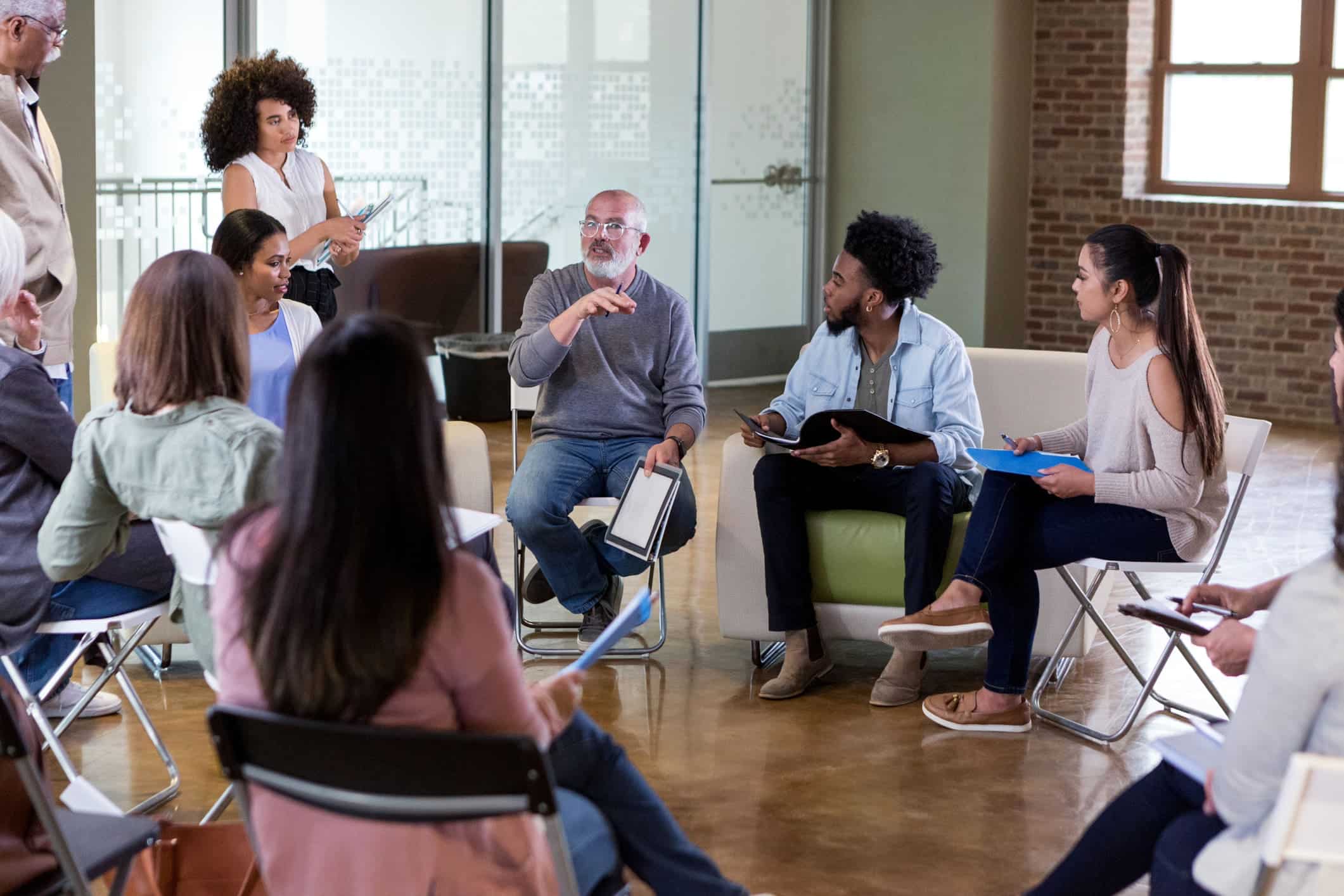
How Associations Can Avoid Assumptions to Better Serve Their Members
Many associations understand they exist to serve the needs of their members, but the concept of servant leadership goes beyond that.
On a recent episode of the Higher Logic Member Engagement Show podcast, we had a chance to learn how inclusiveness, holding space for those we serve, and giving our sincere and undivided attention, is the key to providing the highest-value levels of service. Not only does it lead to better associations, it leads to solutions that fit real needs and that make for a better world.
The Guest
Marianne Fray is CEO of the Maternity Care Coalition (MCC), an organization working to improve the health and wellbeing of pregnant women and parenting families. MCC also seeks to enhance school readiness for children aged zero to three. A master at building relationships and coalitions that strengthen communities and drive growth, Marianne established two successful cross-company industry communities that continue to drive innovation in the project management and life sciences industries. She has advised F100 companies on diversity & inclusion practices and is founding member of the nonprofit Women of Color in the Pharmaceutical Industry.
Best Advice:
It’s easy to feel beaten down and like your voice isn’t important, but it is. When we approach every interaction with a genuine wonder and curiosity around who that person is, what they have to share – truly believing they have value – that helps get you to a more intimate place, which leads to better conversations, relationships, and engagement.
What Does it Mean to Be a Servant Leader?
As a leader, Marianne keeps the stakeholders she’s serving at the center of the work she does. Her parents immigrated from Jamaica in the 50s to do missionary work and landed in the Philadelphia area in the early 60s, running a rescue mission in North Philadelphia for about 30 years. From age six to around 18, Marianne lived at the mission and embraced that culture of service. She listened and learned the stories of those they were feeding, clothing, and sheltering. Going beyond just addressing the external need and truly getting to know people shaped how she leads in everything she does today.
How Inclusion Helps Get to Breakthroughs on Tough Problems
When Marianne brought together senior leaders throughout life sciences companies to think about how the lack of women at senior levels of organizations could be addressed, everyone agreed it was important, but few people knew why it wasn’t happening. Likewise, during her work with a global project management organization, Marianne was struck that it was a very homogenous group, and the organization struggled to figure out why it stayed that way. There was agreement that the organizations could do better and get better results – and that could only happen by truly including everyone, and especially those most affected by the issues the organizations were working to address.
They started exploring what it was within organizational structures that kept people from feeling seen, heard, and welcome – it isn’t always obvious, and you have to be willing to listen and to continuously challenge your assumptions. But it’s worth it, not just for making people feel more included, but for the wider applicability and success of the solutions, programs, products etc. that you develop.
At MCC, Marianne seeks out those people and communities most impacted by pregnancy health issues to ensure that she’s considering their needs as she leads the organization. She has seen this approach drive the most impactful and successful outcomes.
Connecting the Dots Across Industries
In her conversations with different industry leaders throughout her career, it’s become clear to Marianne that so much of what was holding different people back – whether she was working to make industries more inclusive of women or people of color – was the perceptions of what they could and couldn’t do or where they should be. We miss huge opportunities by putting people into boxes. Marianne believes it doesn’t matter whether you’re homeless or the CEO of a major company, people want to be seen and heard. As she began her work with MCC – which serves pregnant people who face many challenges, and often with few resources – she kept in mind what she’d picked up in many previous roles: that we’re people first, and everyone has the human right to be seen and heard.
Individually and Systemically Addressing Barriers to Inclusion
Marianne’s parents strived to send her to a prestigious boarding school, at which she felt very out of place having come from a community with lots of poverty. She could see the disparity between the haves and the have-nots. When she had an unplanned pregnancy at 18, she was taken to a community hospital where the treatment she received was appalling. It was clear to Marianne the medical providers only saw an unwed black teenager having a baby, without acknowledging and respecting her whole personhood. The system put her in a box and the perceptions around which she was evaluated continue today. Individual and, perhaps more dangerously, institutional prejudices of who’s worthwhile and who’s not create poor outcomes. Individually, we have to check our biases. We have to remember that we don’t know what a person’s going through and treat them with respect no matter their circumstances – we have to strive to listen and let their needs guide how we help them as opposed to being led by our own preconceived opinions. Whatever judgments we have should not define the quality of care or service. And we must seek to examine, identify, and correct the systems that undergird those misperceptions. This is not an effort that’s undertaken once and then considered done – it’s a daily practice.
How Do You Foster This Kind of Inclusiveness?
Marianne feels the key is listening. The first thing she did as CEO of MCC was go to the various sites and listen to staff and those being served. Doing so established a trust and understanding she couldn’t have gotten any other way. She wasn’t seeking to run an agenda of her own, she was trying to learn what her constituents needed so that she’d be in a better position to represent them. And this lead to better outcomes for the organization, and better investment from the community.
So step one is committing to listening. Step two is to put what you hear into action. Value personal impact stories, and not just on metrics, and explore how you can act on those stories. Often, the stories people share will guide you to the pain points of your clients. And they must feel free to tell those stories. It’s easy to stay silent in settings where you feel there aren’t other people like you who value your point of view. Leaders have to create safe spaces for those they serve and build trust by being open to feedback, hearing what their community/members/constituents need, and acting to fulfill those needs.
To learn more about Marianne and her work, you can read her article in Women’s Way. To learn more about Maternity Care Coalition’s work, check out their 2022 Annual Report: Advocating for Parental Autonomy.
You can also download Higher Logic’s 2022 Association Member Experience Report to learn more about what members value most from their associations – and consider using it as a jumping off point for surveying or polling your own members about what they want most from your association.


